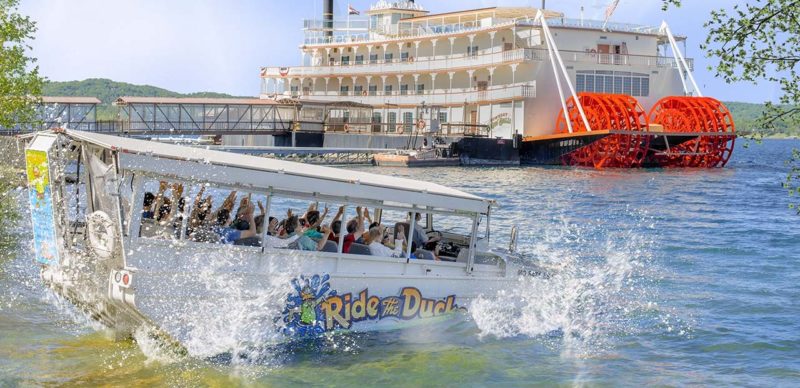Sen. Hawley’s legislation would authorize previously-outlined National Transportation Safety Board (NTSB) recommendations, including provisions to require the use of life jackets and equipping all operating duck boats to be more buoyant in the case of emergency flooding.
“Missouri still mourns the lives lost on Table Rock Lake last summer," Hawley said in a statement. "Sadly though, this tragedy wasn’t the first of its kind. For decades now, the NTSB has been making recommendations to make these rides safer, but Congress has failed to act. It’s my goal to change that by introducing this legislation today. We have to protect safety on the water.”
The NTSB made their recommendations three years after a 1999 duck boat tragedy killed 13 in Arkansas. Hawley’s legislation goes a step further by barring duck boat operation in severe weather conditions. Once enacted, non-compliant duck boats would be prohibited from operating until they meet the necessary requirements outlined in the bill.
Hawley's bill directs the Coast Guard (USCG) to require duck boats be outfitted with passive reserve buoyancy to ensure that they remain buoyant even in the event of flooding.
The bill also includes enhanced safety requirements including:
- Removal of canopies that can restrict horizontal or vertical escape in the event of sinking and require personal floatation devices to be worn.
- Install independently powered electric bilge pumps able to remove water.
- Install not fewer than four independently powered bilge alarms.
- Verify watertight integrity of any vessel at the outset of each waterborne departure.
- The bill prohibits the further operation of non-compliant APVs (amphibious passenger vehicle).
- Operators must inform passengers that seat belts may not be worn during waterborne operations and a crewmember must visually check that each passenger has unbuckled his or her seatbelt.
The bill also directs the Coast Guard to implement severe weather emergency preparedness requirements for APV operators including:
- Limiting the weather conditions in which APVs may operate.
- Requirements for vessel operators to check the National Weather Service (NWS) forecast before getting underway and periodically while underway.
- Requiring operators to leave the water or proceed to safe harbor if the NWS issues a watch or warning for wind speeds exceeding the vessel’s certification.
- Vessels must have a weather radio at the operator station which can be activated by a NWS warning.
Text of the bill and a one page summary can be found on Sen. Hawley’s website.





